Content:
- Where to take the recyclable materials and how to organize its export?
- Important points in the organization of waste sorting and disposal for recyclable materials
- Products that can and can not be recycled, features of
preparation Contrary to popular belief, in Russia, both in megacities and small towns, special services responsibly approach the process of waste disposal. If each person will know how to sort the garbage and where to take it after that, the ecological situation in the country will improve significantly. To do this, you just need to install at home not one waste container, but several separate compartments.
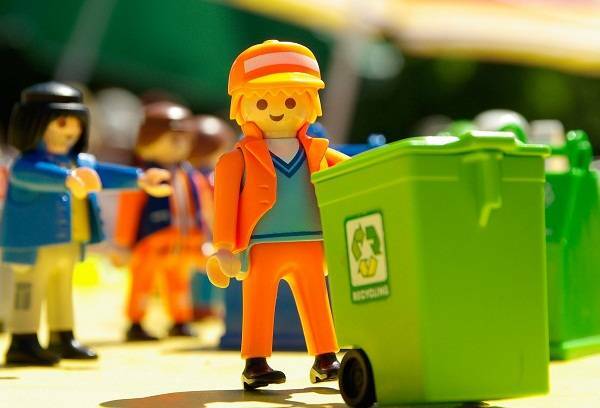
Sorting itself does not require the allocation of extra time, if you initially distribute things intended for ejection correctly. It is necessary to take into account all aspects of the process from the very beginning, then it will be possible to quickly and without hassle organize the disposal of all unnecessary and even get a small income from this.
Where to take the recyclable materials and how to organize its export?
In most cities there are processing factories. To find them you need to contact the district administration or simply use the Internet search. They are independently engaged in the processing of material and are so interested in it that they readily pay a considerable amount of money for certain products and even help organize its export. Especially when you need to transport a large load or just a large batch of raw materials.
Advice: It should be taken into account that often the organization of transportation of garbage is possible only if a certain weight of the material is set. Therefore, you should not expect the successful organization of the process, if there is only one container for recyclables. In order to work seriously in this direction, we will even have to allocate a certain area for garbage containers.
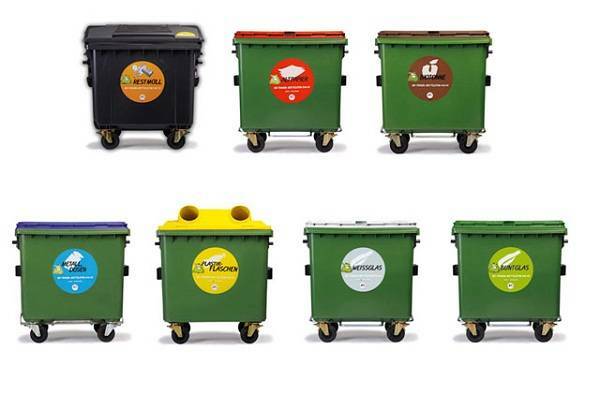
In addition, there are points of recycling, where you can at one time hand over all the products that are subject to further processing. Even if such an organization is far from home, and to use a personal car there is no possibility or desire, again there are options for organizing the collection and transportation of products. In a pinch, you can connect volunteers to the process, you only need to select the right organization and leave your application.
Important points in the organization of sorting and removal of garbage on recyclable materials
If you learn how to throw garbage out correctly, it turns out that only food waste and some specific products that are not recyclable go directly to the garbage disposal line. Especially advanced in this area prefer not even the remnants of food to throw out, but use special vermicomposters. With their help you can get rid of the smell of rotting foods, and at the output you get a wonderful fertilizer for cottages or house plantings.
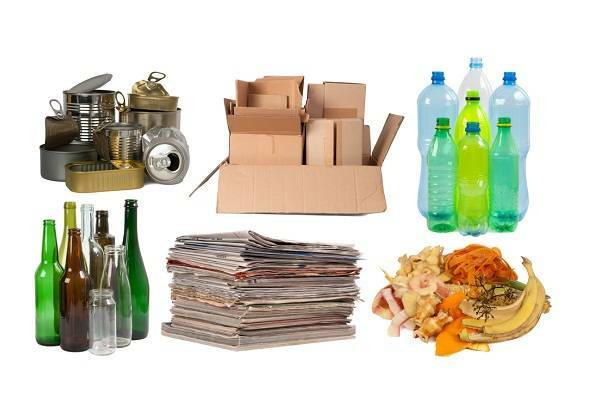
Disposal is possible only if certain conditions are met, therefore, before deciding where to take the garbage, it is necessary to learn how to properly collect, sort and store it:
- Choose the place in which the container will stand. To save space, it is recommended to take a large container, which inside is exposed by several smaller containers. Then the design does not take much space and will look decent. In addition, you can purchase sorting boxes with lids, which are stacked on top of each other. It is better to take out a bulky cargo at once or to store it on a balcony. According to statistics, a small family fills a standard container in about 1-2 months.
- My products used. Before sorting out the trash, it needs to be washed, otherwise the food residues will rot. This will not only render raw materials unfit for use, but also give the owners of the apartment and their neighbors many unpleasant minutes. Only a few seconds under running water will prevent such a problem and save energy resources of processing companies.
- Compress the objects. Most of the garbage, even if it is large, can be reduced in size if desired. Boxes are folded, aluminum cans are crushed, open containers are put one into the other, recycled paper is tied with string.
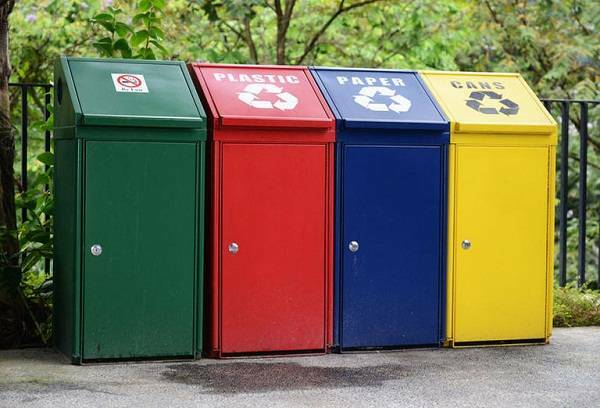
In the case of certain products, additional processing is necessary before disposal. After it will be possible to find the point where garbage will be surrendered, it is recommended that you familiarize yourself with its rules for the acceptance of raw materials, in order to initially prepare everything qualitatively.
Products that can and can not be handled for recycling, especially the preparation of
For recycling, you can take almost everything, most importantly, for each product to adapt a separate container and prepare the products accordingly.
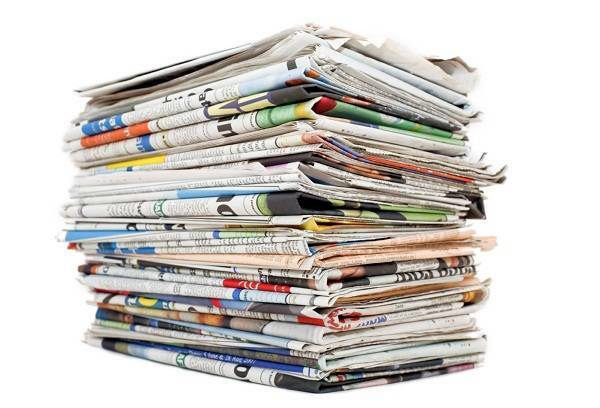
Recycled paper:
- Recycled paper with prints and clean, cardboard boxes and packaging without film on the surface, leaflets, banners, brochures are allowed to be disposed of.
- Products must be carefully assembled, eliminating staples, clips and staples. You do not need to tear up the sheets! Grinding spoils the structure of products, so the quality of secondary raw materials is reduced.
- Regardless of where the products are delivered, it is forbidden to use already recycled materials. These include egg pads, toilet paper, store receipts, paper napkins and scarves, disposable cardboard, wallpaper( used with adhesive layer), photographs, diapers, travel tickets and some types of packaging.

Glass:
- We put glass jars and bottles from food, beverages and medicines into a suitable container.
- Products from oil can not be recycled, it can not be completely laundered.
- Ceramics is not used as recyclable materials.

Plastic:
- On each plastic product there is a corresponding marking on which it is possible to determine the possibility of recycling the object. These can be bottles of beverages and sauces( labeling 1), dairy products( marking 2, 6), plastic containers( marking 6), bottles from cosmetics and household chemicals( marking 1, 2).
- Oil containers, blisters( from toothbrushes or shaving machines), foam plastic, drinking straws, toothbrushes, frozen food packages, chocolate, cereals and macaroni, packages and disposable utensils are not subject to processing.
Metal:
- We rent aluminum, tins and cans, iron covers from glass containers.
- Disposal of aerosol cans and used foil is not permitted.
- Some metals have multiple cycles of processing, which is very appreciated. These items need to pay attention first.
A separate container must be fitted for each group of listed materials. Keep all garbage in one place is prohibited, even if it has passed the appropriate treatment.
